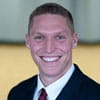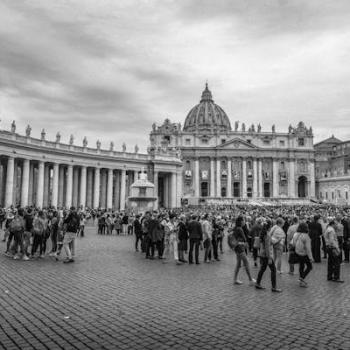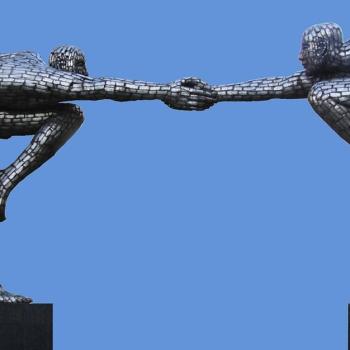 By Rabbi Shmuly Yanklowitz
By Rabbi Shmuly Yanklowitz
Judaism experiences major threats right now: existential threats concerning Israel, anti-Semitism, assimilation, and apathy to name a few. Yet, aside from this typical list, I believe that the most imminent threat may be the privatization of religious meaning-making. The major challenge for the Jewish community in the 21st century will be whether or not we can translate our rich tradition and holy law to speak to the most pressing contemporary moral problems of our time.
According to the 2002 National Jewish Population Survey, 96 percent of Orthodox Jews, 92 percent of Conservative Jews, and 87 percent of Reform Jews believe that being Jewish involves living an ethical and moral life. Those are remarkable statistics but they are eight years old and the interests of the younger generations are changing fast. How can we best ensure, moving forward, that the Jewish community fights at the forefront of social justice issues, while continuing to be guided by Jewish laws and ethics?
In order for Judaism to be relevant to the 21st century, we will need to prevent Jewish thought from being hijacked to the monastic serenity of quiet mountaintops where peace is chosen over truth and the self over the collective. Private life can feel like such a reprieve, an erotic haven or beit midrash for self improvement, mainly because we can feel the need to retreat from the pressures of public life. The sense that the public arena has fallen into immediate neglect draws young people into a private space where they see their best chance for development.
Authentic religion today exists in the hustle and bustle of the streets, and it is here that Torah can be most transformative for 21st-century Jews. As Moses is reassured (Deuteronomy 30:12), "Lo bishamayim hi" -- The Torah is not in the heavens! It is in community and in relationships.
With the bumping on the sidewalk, ringing of unsavory honks, canvassing by activists, and the extending of a beggar's palm, dignity can be forgotten on the streets. But it is here, in the public sphere, that we tell our story along with the potpourri of Jewish stories long forgotten.
While religion has a private dimension, its relevance is proven in the public arena in an encounter with strangers and in the face of an unexpected moral dilemma.
In the street, the proclivities of our hearts can be opened to the complexity of the Other and of society. But then, with Judaism in the streets, our actions must connect to our hearts, while striving to achieve the ideal of being lomed al menat laasot, learning in order to fulfill.
We can call a moratorium on the perpetuation of partisan markers as the primary images of Jewish political identity. In lieu of continuing to construct the monolithic traditional liberal and conservative identities, which have become so pervasive throughout the Jewish community, we need more radicals!
Too frequently, liberals and conservatives are content with bumper stickers, quoting stats at meals and in emails, cultivating animosity for the opposition, yet they do nothing from a distance.
The liberals and conservatives fully understand that millions of lives and billions of dollars are at stake in economic reform and foreign policy, and though they may rant and rave, their actual contributions to social change are too often limited. We need Jewish radicals!
Radicals, as opposed to liberals and conservatives, ensure that they win in the streets. It is not enough to care and to talk. A virtuous radical must ensure his or her own authenticity by being fully present in the streets along with maintaining a personal relationship to Torah, with a self-identity that transcends the comforts of passive rhetoric and partisan identity; she escapes the self-referential and attempts to resolve complex tensions through partnership and dialogue leading to action.
In today's hyper-individualistic society we "bowl alone" and are less committal to any one community. In addition to our Jewish community becoming less engaged with American issues, we see a similar trend in regard to our relationship to our Homeland. A 2006 AJC study found that while 79 percent of Orthodox Jews feel "very close to Israel," only 16 percent of non-Orthodox adult Jews do.
Yet as homo socius, social beings, our truths are created and recreated in dialectic conversation. Rather than having to bow to the socially accepted conventions of conformed discourse, we can more fully speak our truths and embrace those of our fellow. This is part of entering the public sphere and reengaging civically.




